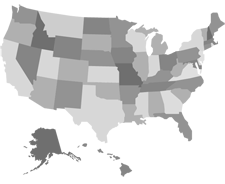Look Before You Leap Into a Payday Loan
Payday loans have become a very popular source of borrowing over the past decade. And as with most things, there are supporters and critics of this alternative form of subprime lending. Opponents generally focus on the extremely high interest rates which payday lenders charge their customers. But supporters say that without these types of loans, individuals who need fast access to cash funds would be forced to go to other loan companies whose fees and terms could be even more costly and harmful to borrowers.Payday loans, when used properly, can be a good means for people to handle an unexpected financial need quickly and responsibly. Today it is much harder to qualify for a personal loan from a traditional lender such as a bank or credit union. If your credit history is less-than-perfect, it can be nearly impossible to be approved for a low-interest loan from sources such as these.
It's interesting to note that many large U.S banks have begun offering consumers loans which are strikingly similar to payday loans- high interest loans which are due to be repaid on the borrower's next payday. So in spite of all the critics who routinely call payday loans a perfect example of predatory lending, it seems that these very same loans have now gone mainstream.
Should you be wary of payday loans? Of course. But you should be cautious any time you borrow money, no matter what the source.
The Risks
- Payday loans can create a long-term cycle of debt. Payday loans have a very quick repayment period- usually just two weeks. That's not much time to accumulate the extra cash you will need to fully repay the loan plus any interest and fees. Where people get into trouble is when they are unable to pay off the original loan amount when it is due and then are forced to extend it for another two weeks. Each time the loan is extended, the lender charges additional interest and fees. It's good business for them but not so good for the customer.
- Payday loans can cause long-lasting financial problems. Even though the terms and conditions of payday loans are somewhat different than traditional loans, lenders have every right to try and collect on the debt you owe if you fail to repay the loan according to your agreement. This means they can sue you in court to recover the amount due plus any legal fees. They can also attempt to garnish your wages. Don't assume because payday lenders are not a bank or credit union that they cannot legally come after you to recoup the money which you owe. They can and they will.
Mistakes to Avoid
Consumers generally run into financial trouble when they commit to a legal payday loan agreement without fully understanding the risks involved. The following scenarios should best be avoided if at all possible.
- Taking out a payday loan for something other than a true financial emergency. Using a payday loan to purchase the latest electronic device or to fund a long weekend getaway is playing with financial fire. Short term loans should only be used as a last resort to handle an unexpected money emergency. What constitutes a financial emergency? Your utilities are about to be shut off. Your car broke down and you need to repair it quickly. You had an unplanned visit to the emergency room. These are all true needs. Don't confuse a "want" with a "need".
- Not paying off the entire loan amount when it is due. Don't rely on being able to get an extension when you sign a payday loan agreement. First off, not all lenders offer extensions. Secondly, many states expressly forbid payday loan companies from offering extensions to their customers. If you are considering a payday loan, always be certain that you will have the necessary funds to repay the entire loan when it is due. If you have any doubts about your ability to repay the loan within the two week period, it's probably best not to sign the loan agreement.
- Accepting the first loan offer you receive. Do some research before committing to a payday loan. You want to be sure you are dealing with a reputable loan company. Check with your local Better Business Bureau and see if the lender you have contacted has any complaints or lawsuits on file. You can also contact your specific state's Office of Consumer Affairs. Terms and conditions can vary greatlyF from lender to lender. It makes good financial sense to investigate your options before agreeing to a payday loan.
Borrowing money is a serious responsibility. Yes, payday loans do carry some risk. But so does taking out a loan at your neighborhood bank. The bottom line is no matter where you decide to go for a loan, you are always expected to pay it back according to the terms of your loan agreement.
Payday loans can be a real financial lifeline when you need immediate cash funds to handle a bill or other money emergency that absolutely can't wait. Just be certain you know the facts and risks involved with this type of short-term loan before you sign on the dotted line.
State Guides
- Alabama
- Alaska
- Arizona
- Arkansas
- California
- Colorado
- Connecticut
- Delaware
- District of Columbia
- Florida
- Georgia
- Hawaii
- Idaho
- Illinois
- Indiana
- Iowa
- Kansas
- Kentucky
- Louisiana
- Maine
- Maryland
- Massachusetts
- Michigan
- Minnesota
- Mississippi
- Missouri
- Montana
- Nebraska
- Nevada
- New Hampshire
- New Jersey
- New Mexico
- New York
- North Carolina
- North Dakota
- Ohio
- Oklahoma
- Oregon
- Pennsylvania
- Rhode Island
- South Carolina
- South Dakota
- Tennessee
- Texas
- Utah
- Vermont
- Virginia
- Washington
- West Virginia
- Wisconsin
- Wyoming



